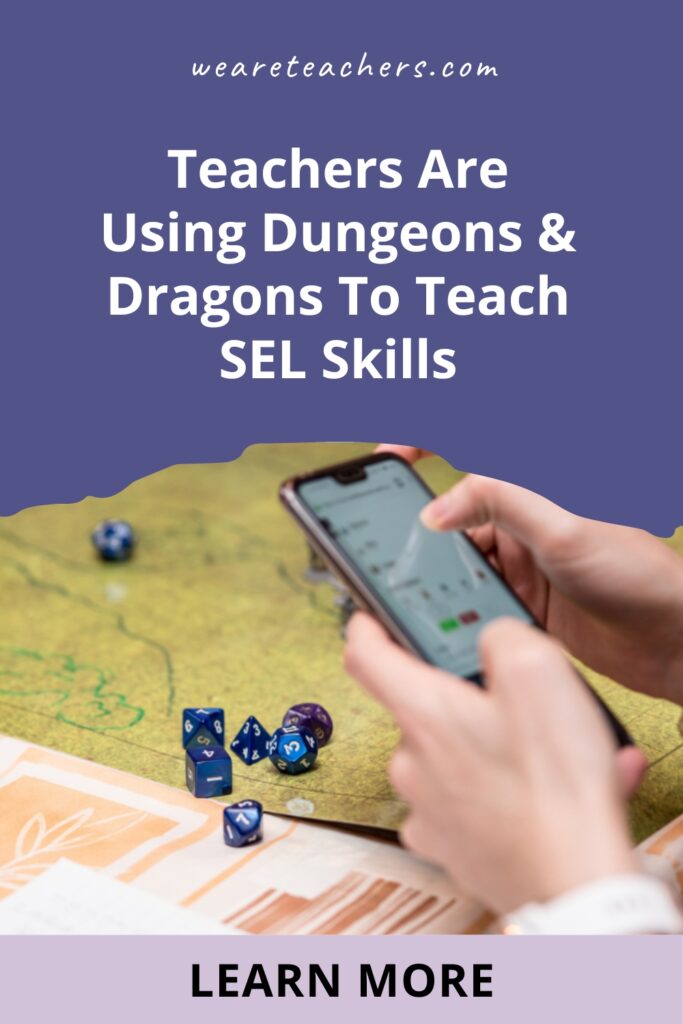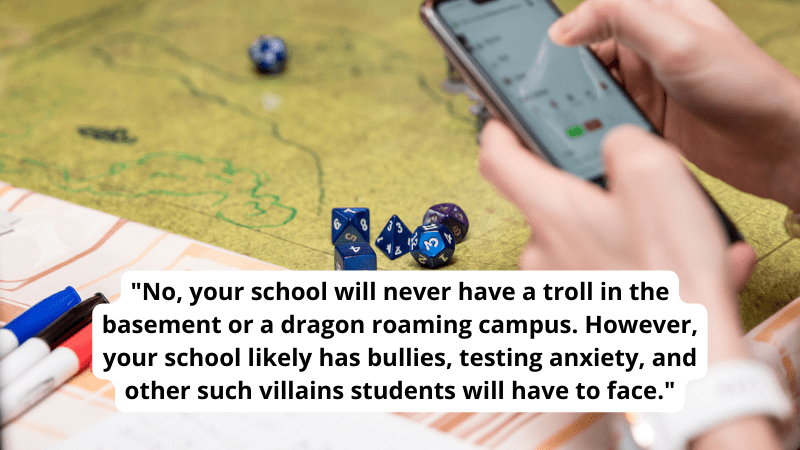When Wanda M. started her school’s Dungeons & Dragons club, her expectations were mild. After all, clubs were meant as a “reward” for good behavior at her special needs school. Role-playing games would be a great motivator for students to follow directions and complete work. However, the kids in her group began to flourish and grow. Kids who were silent began to make friends. Children who often interrupted others learned to take turns. Instead of just a club, she had stumbled upon a way to teach social and emotional skills in a fun and novel way.
Role-playing games have recently become a tool used in trauma therapy and disability skill-building for adolescents. While the research into the effectiveness of role-playing is still new, many therapists have already found results. While teachers won’t be using role-playing games in a mental health expert role, they can definitely help kids learn and practice social skills and coping strategies in a safe way.
How it works
Dungeons & Dragons takes place in a fantasy world that players interact with through their characters. These characters range from human to fantastical “ancestries,” such as elves or goblins. The characters also have special skills based on their “class,” such as the magical wizard or the charismatic bard. As the players explore and defeat challenges, they gain experience, building up new skills and abilities.
The Game Master (GM) sets up the basic setting and problem for the players. These problems can range from basic battles to puzzles to social encounters and more. Once a problem is established, the players use their skills and abilities to solve the problem. How they solve the problem can, and often does, influence the difficulty of the next scenario. The Game Master also keeps the game moving through hints, decisions about rules, and storytelling.
Make it relevant
No, your school will never have a troll in the basement or a dragon roaming campus. However, your school likely has bullies, testing anxiety, and other such villains students will have to face. Role-playing games take these issues and abstract them, allowing kids to stand up to their bullies or face their anxieties in a safe and collaborative manner.
Before you begin to look at adventures, talk to your school’s counselors. While they may not be able to tell you exactly what is discussed in sessions, they may clue you into broad themes. You may also want to create a questionnaire for your kids. When selecting an adventure, look at the description to see if the themes are relevant to your classroom. Not all adventures are monster-filled mazes, and some even concentrate on social encounters.
Set boundaries
Before play, ensure everyone knows not just the rules of the game but the expected social behaviors. Students should understand that interrupting others may have undesirable in-game consequences. Students also need to understand the game will not have a “winner” and that teamwork will be required to solve problems. You may also want to use specific tools such as the X card. The X card is just a card that a student can tap when they feel overwhelmed by a scene or description. The X card can also help students identify when they cross boundaries and need to choose a different strategy.
A team approach
When using role-playing games as part of social-emotional learning, teaming up with a therapist either as a player or even a co–Game Master makes the sessions more effective. The counselor can remind students of coping strategies or skills that need practice. The counselor can also debrief at the end, helping students to reflect on skills used and lessons learned.
Available resources
The Bodhana Group offers workshops for therapists and educators. The group also offers a quick-start guide to using Dungeons & Dragons in an intentional way.
Critical Core is a role-playing system designed for use in therapy and social-emotional learning. The system was designed by Game to Grow, a nonprofit organization focused on education and social-emotional development.
Kids on Bikes is a rules-light system set in the modern age with children as the core audience.
What are your thoughts on using D&D to build SEL skills? Let us know in the comments!
Looking for more articles like this? Be sure to subscribe to our newsletters!


